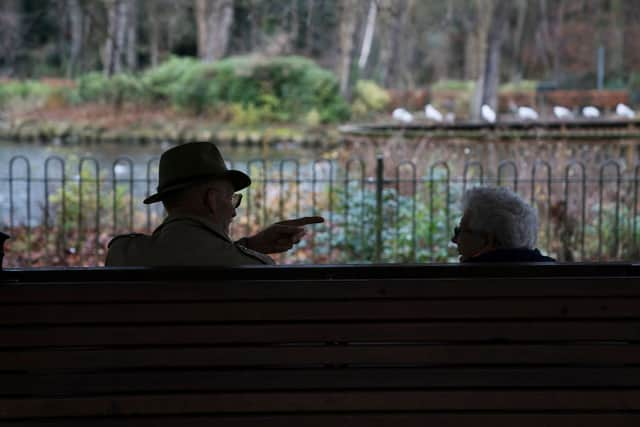Nature: Just 10% more green space in an older person's neighbourhood can boost physical and mental health
and live on Freeview channel 276
Older people having more access to nature and green spaces in their own neighbourhoods could provide a big boost to their mental and physical health.
A new US-based study, by researchers at Washington State University and published in science journal Health & Place, saw a team study health survey data from more than 42,000 people aged 65 and older, who lived in urban areas in Washington state. The team specifically focused on older people due to their increased vulnerability to mental health issues like depression - a risk-factor for dementia - as well as their decreased likelihood of seeking help for their mental health.
Advertisement
Hide AdAdvertisement
Hide AdAbout 2% of the respondents overall showed signs of serious psychological distress, while 19% reported having fair or poor health. But the researchers found that having more green and blue space in their local area significantly reduced their chances of falling into these categories.


Just 10% more forest space in a person’s postcode was associated with a reduction in serious psychological distress - mental health problems that require treatment and interfere with people’s lives. Similarly, a 10% increase in green space, tree cover, water bodies or length of nearby trails corresponded with a lower chance that older people reported their general health as poor or fair.
Lead author Adithya Vegaraju told SWNS: “Older adults with depression, anxiety or mental health issues are known to be more resistant to medical interventions or talk therapy, which are the go-to treatments for these conditions.
"If exposure to green or blue spaces could help prevent, delay or even treat poor mental health in older adults, we need to look at that more closely as a way to improve mental health outcomes in this population," he continued. He added that the team's findings suggested that the loss of urban green and blue spaces due to rapid urbanisation may not just have an environmental impact, but could have a public health impact as well.
Advertisement
Hide AdAdvertisement
Hide AdCo-author Solmaz Amiri hoped to research this link further, specifically studying the relationship between nature exposure and cognitive decline. “It is thought that exposure to green and blue spaces could help slow cognitive decline," she added.
“What we would like to know is if green and blue space exposure can influence dementia directly or whether it can do so by reducing mental health issues that may lead to cognitive decline.”
Comment Guidelines
National World encourages reader discussion on our stories. User feedback, insights and back-and-forth exchanges add a rich layer of context to reporting. Please review our Community Guidelines before commenting.
